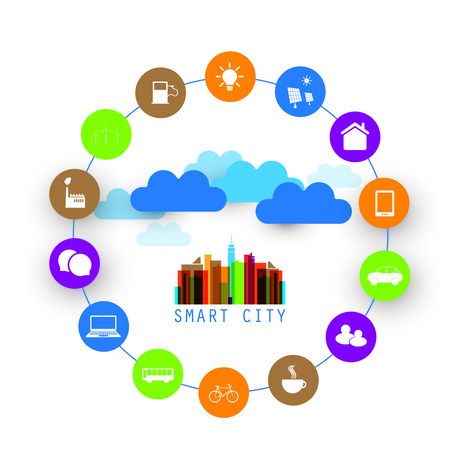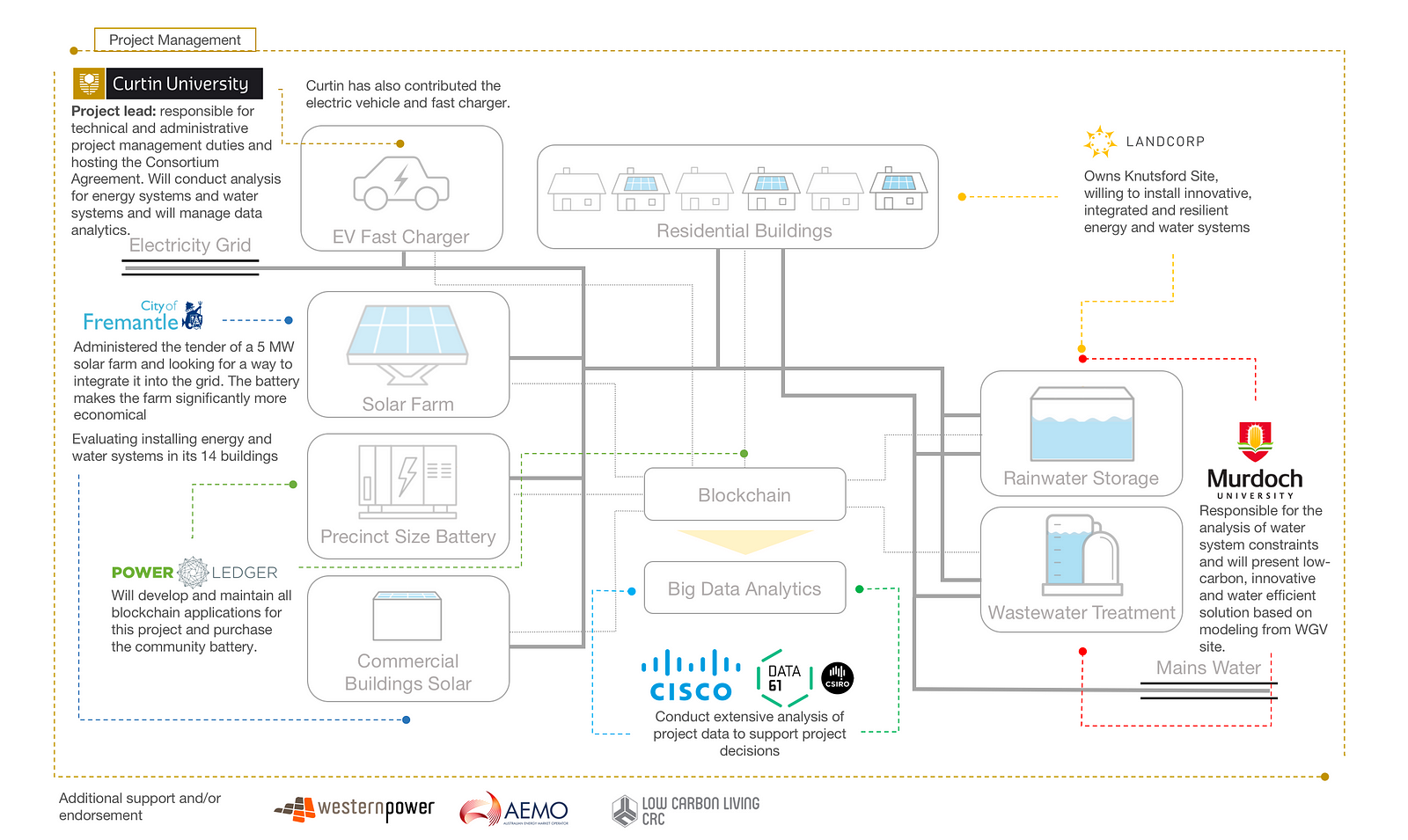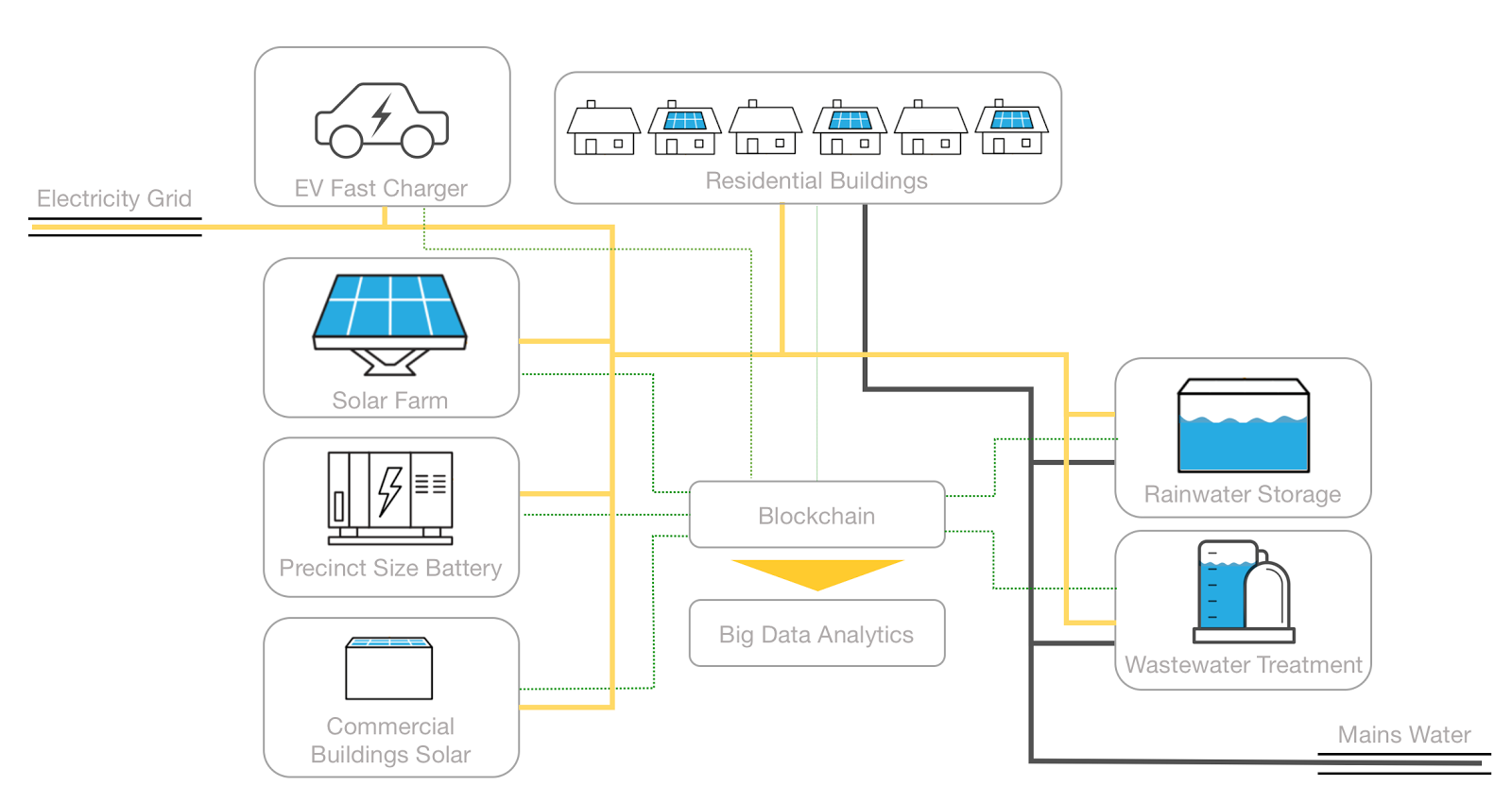Smart cities with water and energy efficiencies

A future smart cities project in Western Australia that involves academic, infrastructure and technology partners will assess how cities can use blockchain technology and data analytics to integrate distributed energy and water systems.
The 2-year trial project in the City of Fremantle will involve highly resilient, low-carbon and low-cost systems installed and connected using blockchain technology. A large solar photovoltaic (PV) plant, rooftop solar PV panels, a precinct-sized battery, an electric vehicle charge station and precinct water treatment and capture systems will be orchestrated using blockchain technology and data analytics, and demonstrate the interconnected infrastructure of future smart cities.
Curtin University has responsibility for project management duties and will carry out the research underpinning the project.
Professor Greg Morrison of Curtin University said: “We will develop a smart metering, battery storage and blockchain trading system to allow energy and water efficiencies between critical dispersed infrastructures that would otherwise have required physical co-location.”
Power Ledger will develop and maintain all the blockchain applications on the project. Meagan Cojocar, who is an analyst at Power Ledger, said the project will be able to demonstrate how the blockchain technology can not only work with co-located assets but also assets at another location, such as an off-site solar farm which is planned to be built in South Fremantle, possibly by 2020.
“Blockchain technology can track data from anywhere in the world,” said Cojocar. “It therefore creates an effective database that works kind of like Google Docs, in that it’s constantly updated and all parties can see that data in real time. So, if someone consumes energy, all the parties in the system can see it, a trade can be made and instantly settled in real time in a virtual marketplace.”
“The assets are using a lot of algorithms, not just blockchain technology, as you need an understanding of how you can make the data work for you,” said Cojocar. “The data is also going to interface with water assets. So if there’s an excess of on-site energy generation, it can be used at the water treatment systems then and there rather than waiting until night when the energy is more expensive.
“The assets will be in a water-energy synergy so they are benefiting each other — just like their own little eco-system.”

Murdoch University will provide research support on alternative district water supply and storage schemes that will be used to provide water, capacity and ancillary services to each other and the grid.
Martin Anda, Academic Chair of Environmental Engineering, said: “This news is very exciting as we now have the opportunity to develop an entirely new precinct-scale urban water system in Fremantle that will harmonise with the innovative Power Ledger Platform.
“I am thrilled with the prospect of commencing research, modelling and designing the novel water distribution infrastructure upgrades at Knutsford, through rainwater capture and wastewater recycling, with the City of Fremantle and the whole team.”
Curtin Institute for Computation and Data61 will provide the data analytics required to generate insights from these projects.
Professor Andrew Rohl, Director of the Curtin Institute for Computation, said: “We commend the City of Fremantle and its industry partners for their vision on this project and look forward to assisting them to provide a more sustainable future for their community.”
CISCO will be supporting the project as part of its strategic partnership with Curtin University called Innovation Central Perth.
CSIRO and Data61 have the capabilities required to assist in the delivery of this project, including megatrend analysis, risk analysis, statistical forecasting and systems modelling.
“CSIRO’s experience collaborating with industry and government to build platforms will ensure the data generated by the project will be utilised by the community, project partners and municipal government,” said Glenn Platt, the Research Director of Grids & Energy Efficiency Systems.
LandCorp is taking part in the project to monitor success in order to explore alternative water and energy systems that are connected to smart technology.
Dean Mudford, Chief Operations Officer of LandCorp, said: “We are excited to be part of a shared commitment to explore alternative water and energy systems which are innovative, resource efficient and connected to smart technology. The potential for this level of innovation to be embedded within the next stage of our Knutsford development supports our broader corporate objective to lead by doing. Funding which allows research to explore alternative water and energy systems has the potential to significantly reduce infrastructure development costs for decades to come.”
Power Ledger will provide the transactional layer for the renewable assets as well as the ownership model for the community-owned battery.
Dr Jemma Green, co-founder and Chairperson of Power Ledger, said: “Power Ledger is excited to work with a consortium of innovators and technical experts to grow and develop the platform. We’re excited to break ground on this truly novel project that utilises blockchain technology to orchestrate sustainable assets.”
Brad Pettitt, Mayor of the City of Fremantle, said: “This collaboration between existing infrastructure, renewable energy and innovative technology fits with our One Planet zero carbon energy target and will help us to secure the ongoing sustainability of essential services for communities that live here.”
The 2-year trial project in the City of Fremantle won $2.57 million in grant funding in November 2017 from the federal government’s inaugural Smart Cities and Suburbs Program. $5.68 million funding will come from project partners including Curtin University, Murdoch University, Curtin Institute of Computation, LandCorp, CSIRO/Data61, CISCO and Power Ledger. The project will also be supported by the Australian Energy Market Operator (AEMO), Western Power and the CRC for Low Carbon Living.
Remote control for water and wastewater in Hawke's Bay, NZ
Ovarro's Kingfisher CP-35 remote RTUs were chosen by Hastings District Council and Napier...
Thirsty emus look to smart solar for their daily drink
A solar-powered irrigation project has been designed to help ensure the sustainability and...
Strategic priorities for Australia's water utilities in 2024
Facing a rapidly growing population and long-term climate change, Australia's water utilities...












